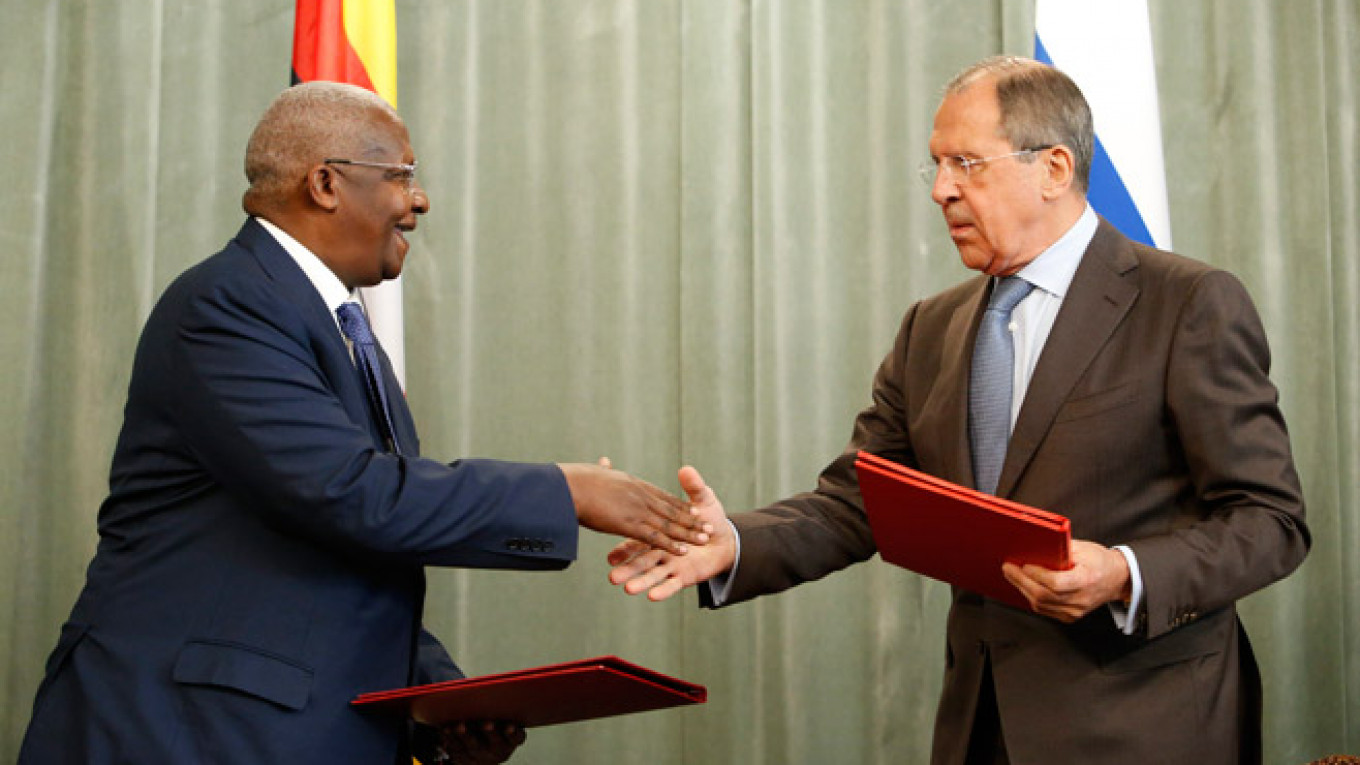The views echoed among Russia's state-owned television networks have taken a firm grip on the country's population, according to the results of a poll published Monday.
The Levada Center, a Moscow-based independent research organization, revealed that 94 percent of the population relies on domestic television networks to follow developments in Ukraine and Crimea. The outcome of the poll, which was conducted in April, was based on the opinions of a representative sample of 1,602 adults across 45 regions.
Russia's television news landscape is comprised largely of state-owned networks that tend to support the Kremlin's account of the situation in Ukraine. The poll suggests that the views presented by state-run news broadcasts have shaped the Russian population's opinions on the situation.
The Levada Center found that 44 percent of respondents think foreign media outlets are "not very objective" about the situation in Ukraine, while 50 percent consider Russia's state media outlets to be "generally objective."
These latest findings lined up with the results of a poll conducted by the organization in March, which found that 47 percent of respondents were confident in the objectivity of their country's federal media outlets.
Foreign Minister Sergei Lavrov echoed this sentiment at a news conference on Monday.
"Images [of attacks on civilians in Odessa and Mariupol] would not be shown on respected channels like CNN and BBC, among others," Lavrov said.
Lavrov then called on Western ambassadors to base their diplomatic reports on Russian state-run television, without which they would be doing a "totally unprofessional job."
Likewise, President Vladimir Putin honored 300 journalists earlier this month for their objective coverage of events in Crimea. Among those honored were broadcast journalists from state-run television channels as RT, Channel One, NTV and LifeNews.
The Levada Center's poll further revealed that 58 percent of respondents believe that observers from the Organization for Security and Cooperation in Europe, or OSCE, in Ukraine had painted a biased portrait of the situation in the country, neglecting the views of its largely Russian-speaking eastern population.
More than half of the respondents expressed the view that the OSCE mission to Ukraine — which was marred by the abduction of its observers by pro-Russian separatists — only exacerbated tensions in the country.
However, the poll revealed a split reaction to Western sanctions against Russia. More than a third of the respondents were "rather worried" about the political and economic sanctions, while 40 percent were "not very worried."
Contact the author at g.tetraultfarber@imedia.ru
A Message from The Moscow Times:
Dear readers,
We are facing unprecedented challenges. Russia's Prosecutor General's Office has designated The Moscow Times as an "undesirable" organization, criminalizing our work and putting our staff at risk of prosecution. This follows our earlier unjust labeling as a "foreign agent."
These actions are direct attempts to silence independent journalism in Russia. The authorities claim our work "discredits the decisions of the Russian leadership." We see things differently: we strive to provide accurate, unbiased reporting on Russia.
We, the journalists of The Moscow Times, refuse to be silenced. But to continue our work, we need your help.
Your support, no matter how small, makes a world of difference. If you can, please support us monthly starting from just $2. It's quick to set up, and every contribution makes a significant impact.
By supporting The Moscow Times, you're defending open, independent journalism in the face of repression. Thank you for standing with us.
Remind me later.


